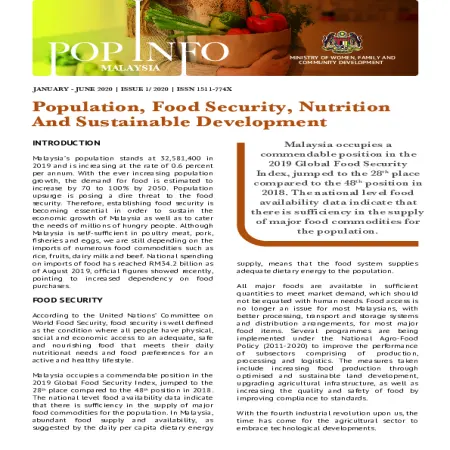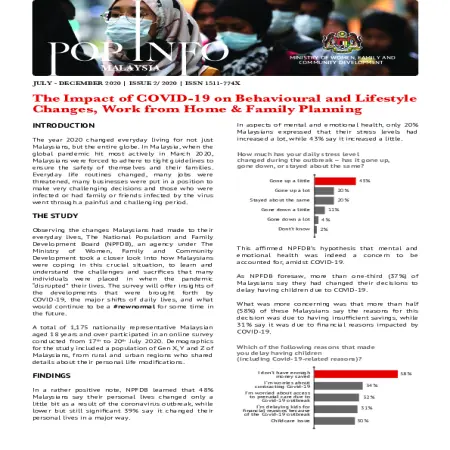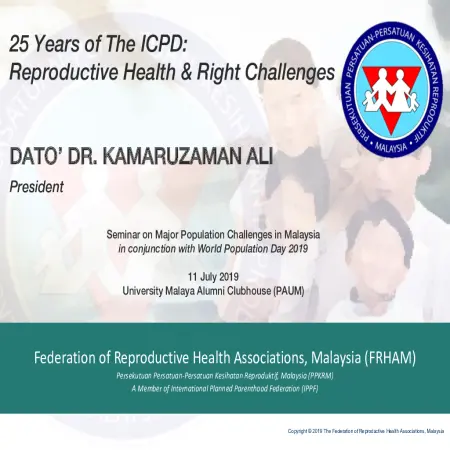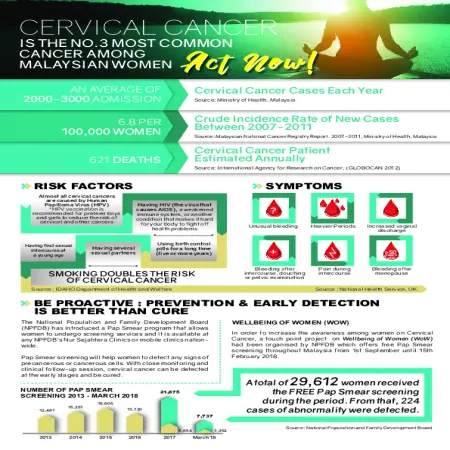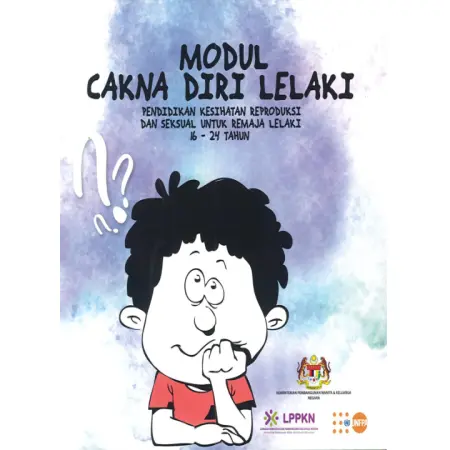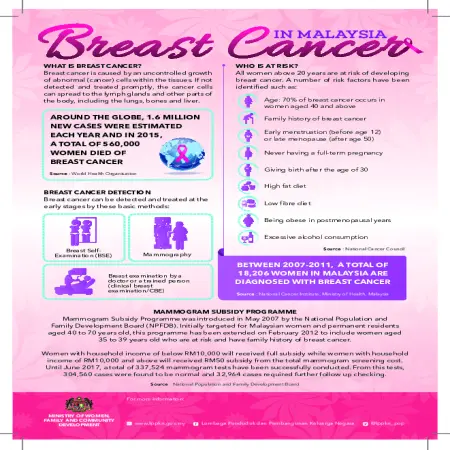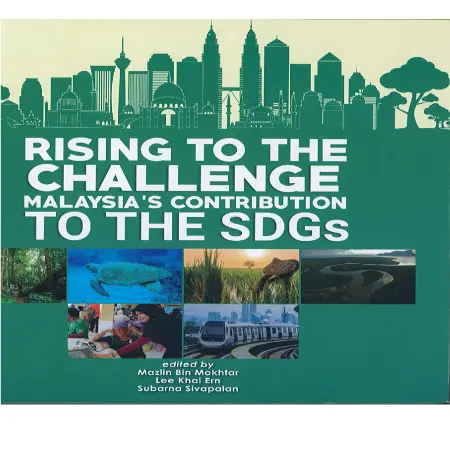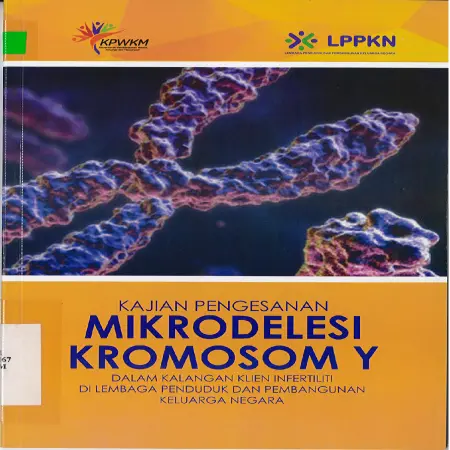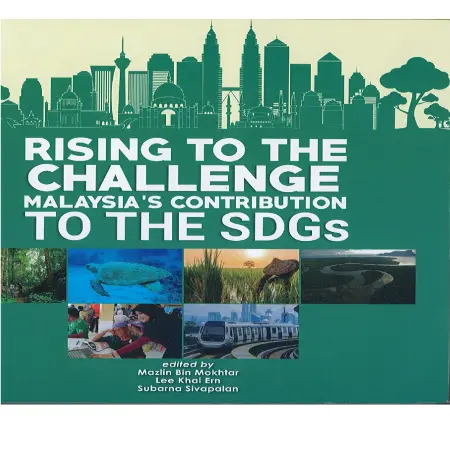TOPICS
Results for Topics : "Health"
|
|
Population, food security, nutrition and sustainable development
Item Type: Newsletter
Editor:
Year: 00/00/2020
Abstract: Malaysia occupies a commendable position in the 2019 Global Food Security Index, jumped to the 28th place compared to the 48th position in 2018. The national level food availability data indicate that there is sufficiency in the supply of major food commodities for the population.
|
|
|
|
|
|
The impact of COVID-19 on behavioural and lifestyle changes, work from home & family planning
Item Type: Newsletter
Editor:
Year: 00/00/2020
Abstract: This survey will offer insights of the developments that were brought forth by COVID-19, the major shifts of daily lives, and what would continue to be a #newnormal for some time in the future.
|
|
|
|
|
|
Differentials in sexual and reproductive health knowledge among East Malaysian adolescents
Item Type: Article
Editor:
Year: 00/00/2019
Abstract: The aim of this study was to assess the knowledge of East Malaysian adolescents on sexual and reproductive health issues. Data were collected in March–July 2015 from 2858 adolescents aged 13–18 years from selected East Malaysian secondary schools using a self-administered questionnaire. Twelve items relating to sexual and reproductive health were used to measure respondents’ knowledge based on their responses ‘True’, ‘False’ or ‘Don’t know’, with the proportion of correct answers being the variable of interest. Cronbach’s alpha for the twelve items was 0.761 and the mean knowledge score was 6.8. While the majority of the respondents knew that a woman can get pregnant if she has sex with a man and that HIV and AIDS can be transmitted through sexual intercourse, knowledge about Malaysia’s abortion laws, that a woman can get pregnant if she has sex only once and that people with sexually transmitted infections may look healthy was poor. Older respondents and those from urban schools reported significantly higher knowledge than younger respondents and those from rural schools, respectively. More emphasis should be given in schools to the specific topics for which low levels of sexual and reproductive health knowledge were found, with greater attention being given to younger adolescents and those in rural areas.
|
|
|
|
|
|
25 Years of the ICPD: reproductive health and rights challenges
Item Type: Conference or Workshop Item
Editor:
Year: 00/00/2019
Abstract: To increase contraceptive prevalence will require strengthening the information, education and skills development of health care providers, repositioning of family planning, more public awareness on benefits and side effects of modern contraceptives, keeping abreast with modern contraceptive technology including LARC, male/boy responsibility programs, better data collection and monitoring including from the young and unmarried, collaboration and coordination with all stakeholders and delivery of quality services to all without discrimination and stigmatization.
|
|
|
|
|
|
Cervical cancer
Item Type: Infographic
Editor:
Year: 00/05/2018
Abstract: This infographic describes information about cervical cancer. Cervical cancer is the no.3 most common cancer among Malaysian women. Almost all cervical cancers are caused by Human Papilloma Virus (HPV). The symptoms such as unusual bleeding, heavier periods and bleeding after menopause.
|
|
|
|
|
|
Modul Cakna Diri Lelaki Pendidikan Kesihatan Reproduksi dan Seksual Untuk Remaja Lelaki Berumur 16-24 Tahun
Item Type: Module
Editor:
Year: 00/01/2018
Abstract: The Sexual and Reproductive Health Module for boys and young men age 16 to 24 years was developed to address sexual and reproductive health as well as social issues for boys and young men. It is also aim to create awareness on the importance of reproductive health and social education as well as gender equality for future well-being. This module is divided into two (2) main target groups i.e. general adolescents (Module A) and most-at-risk adolescents (Module B). The main components of Module A includes topics on adolescent growth, developmental, health, psychosocial - 3R (Respect, Relationship and Responsibility), laws and regulations, drugs and substance abuse. Module B covers topics on risky social behaviors, risky sexual behaviors and teen pregnancy. This module is developed as an interactive form using various learning methods such as role play, sketches, group work and discussions to attract participation of boys and young men.
|
|
|
|
|
|
Breast cancer in Malaysia
Item Type: Infographic
Editor:
Year: 00/10/2017
Abstract: The infographic shows the statistic of breast cancer in Malaysia. Breast cancer is caused by an uncontrolled growth of abnormal (cancer) cells within the tissues. If not detected and treated promptly, the cancer cells can spread to the lymph-glands and other parts of the body, including the lungs, bones and liver.
|
|
|
|
|
|
Reproductive and social health education
Item Type: Book Section
Editor:
Year: 01/01/2017
Abstract: On 6th December 2009, the Cabinet approved the PEKERTI Policy & Action Plan proposed by Ministry of Women, Family and Community Development (MWFCD), which aims to guide young people from getting involved in social problems.
|
|
|
|
|
|
Kajian Pengesanan Mikrodelesi Kromosom Y dalam kalangan klien Infertiliti di Lembaga Penduduk dan Pembangunan Keluarga Negara
Item Type: Research Report
Editor:
Year: 02/01/2017
Abstract: The study "Microdelesi of Y Chromosome among NPFDB Infertility Clients" conducted by the Biomedical Unit, NFPDB is to identify infertility factors from a genetic aspect. Study samples were obtained from infertility patients referred to the Cytogenetic Laboratory, NPFDB from 2003 to 2010. A total of 100 blood samples of clients diagnosed as azoospermia (48), severe oligoasthenoteratozoospermia (24), oligozoospermia (15), severe oligozoospermia (6), Klinefelter Syndrome (3) and idiopathy (4) were performed Chromosome Analysis Tests to identify any abnormalities of the number and structure on the chromosome and subsequently Molecular Testing is performed to detect the microdeletion of the Y chromosome. Majority of ethnic groups involved in the study are Malays, which is 74 people (74%) followed by Chinese; nine (9) people (9%), Indians; seven (7) people (7%) and other ethnicities from Sabah and Sarawak as many as 10 people (10%) in the age range of 23 to 46 years.The chromosome analysis test results for the 100 samples were normal which is, 46, XY, no abnormalities in the structure or number of chromosomes were found. Results was found that 15 samples (15%) underwent Y chromosome microdeletion at the AZF locus in molecular test. From 15 samples, 10 samples were azoospermia, three (3) severe oligoasthenoteratozoospermia samples and two (2) oligozoospermia samples. Each sample experienced deletion at different locus and there were samples that experienced multiple deletion which involved deletion of more than one factor locus (AZF).The most common AZF factors found to experience deletion were AZFc (73.33%) followed by AZFb (53.33%), AZFd (40%) and AZFa (13.33%). In conclusion, it was found that genetic factors are one of the causes of infertility problems among clients came for subfertility treatment. Looking at the importance of undergoing genetic screening testing at an early stage, it is recommended that this test be tested for men diagnosed with azoospermia and severe oligozoospermia at the Subfertility Clinic, NPFDB. The information obtained has prognostic value and influences the medical therapy chosen to assist in the clinical management of the client and his descendant in the future.
|
|
|
|
|
|
Mama Care
Item Type: Book Section
Editor:
Year: 01/01/2017
Abstract: One aspect of women's reproductive health care which is increasingly in demand is postnatal care services. In order to improve the welfare of women in low-income households and to recognise the skills traditionally passed down from generation to generation, Mama Care Postnatal Care Programme was established in 2012 under the 7th National Blue Ocean Strategy (NBOS), 1Malaysia Women's Initiative and Self Empowerment (1MWISE). It is targeted single mothers, elderly and women from low-income household.
|
|
|
|





